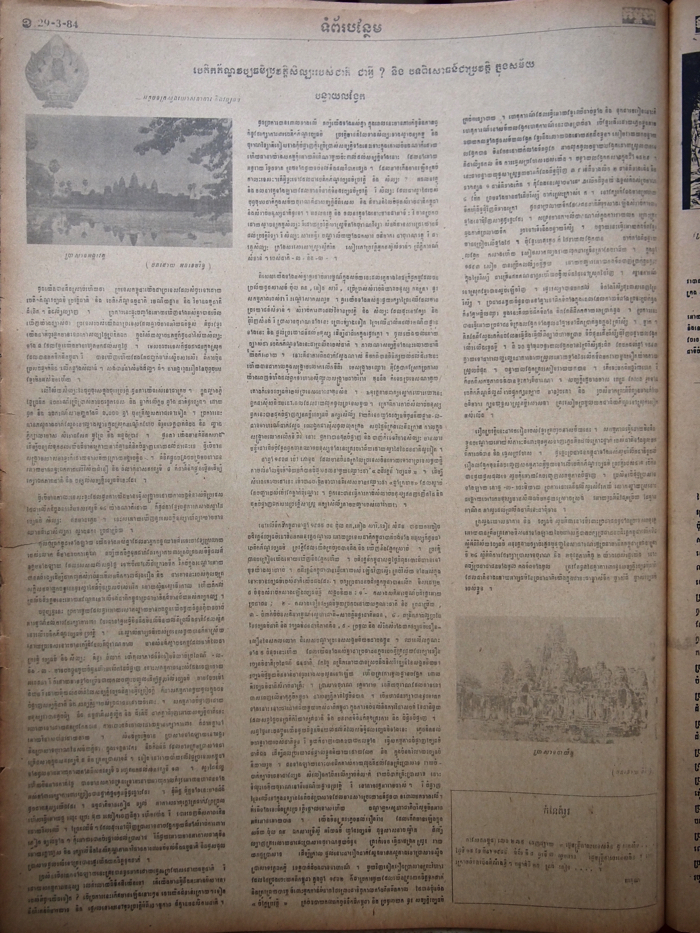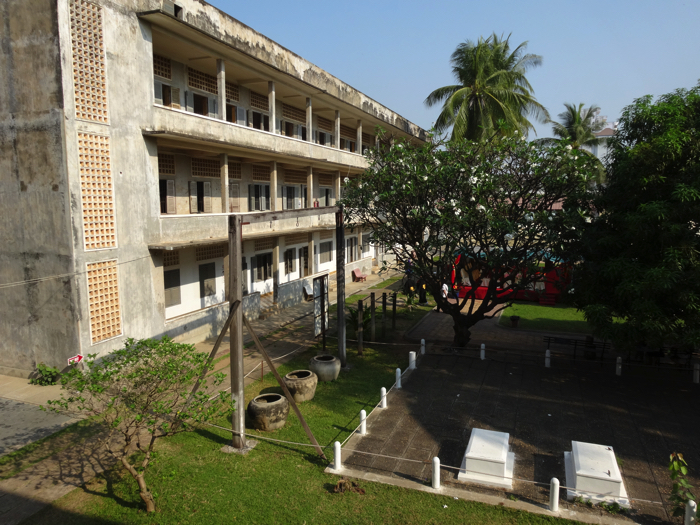- Project Leader : Shintani Haruno (The University of Tokyo, Department of Area Studies, Graduate school of Arts and Sciences)
Outline of Research
This research focuses on the process of constructing images of history and culture, and examines political ideas for national unity of Cambodia during the People’s Republic of Kampuchea (1979-89, PRK) and State of Cambodia (1989-93, SOC) as the country began the process of reconstruction out of the ruins of Democratic Kampuchea (1975-79, DK) and experienced dynamic changes from the period of peace-building to the UNTAC (United Nations Transitional Authority in Cambodia) (1992-1993). Additionally, this research explores newspapers published during the PRK and the SOC periods, especially “Kampuchea” which are stored on microfilm at the Center of Southeast Asia Studies Library.
Description
This research focuses on the constructing process of images of history and culture, and examines political ideologies for the national unity of Cambodia, by researching newspapers, such as “Kampuchea” published during the PRK and the SOC. Since independence, political leaders of Cambodia have relied on selective memories of Cambodia’s past when they claim legitimacy for ruling the country. This is why an examination of history and culture is crucial in study of Cambodia. This research focuses on the PRK and the SOC periods, which provide the foundation for the current regime. Additionally, it analyzes newspapers and attempts to contextualize them within the history of political ideologies of Cambodia.
The Cambodia People’s Party (CPP), which has ruled for the longest period among the several regimes since independence, offers basic studies, such as reports on the Cambodian political system. Studies on political ideologies or propagation to the masses are sparse. Furthermore, this study contributes to the knowledge of political ideology of Cambodia since independence and leads to a historical understanding of the political ideology of the present regime by considering the period from the 1980s to the beginning of 1990s as the period of political construction by the CPP. I have researched the national unity in Cambodia through analyzing textbooks and interviewed teachers and students who have utilized those textbooks. Combining those findings, the political ideology of national unity from the collapse of the DK regime to the rebirth of the Kingdom in 1993 provides a multi-tiered understanding of political developments in Cambodia from 1979 to the present day.
 An Article of the newspaper “Kampuchea” about Cambodian history and culture |
 The Tuol Sleng Genocide Museum |
